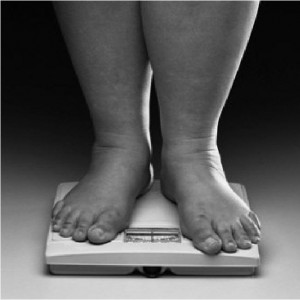Highly Respectable Vegetables - photo by Skycladd
When I told a friend about the passionate reaction to my post questioning the hipster homemakers who pointedly bake their own bread and grow their own food, as profiled by Emily Matchar in the Washington Post, he responded, “Of course. You’ve attacked their religion.”
Maybe he’s right. I wonder if the whole thing isn’t a spiritual question after all.
The average homemaking mother (and statistically less frequent but still important father) has a chorus of critics in her head born of a mishmash of advertising, magazine articles, and seemingly perfect crunchy moms at the park. Buy the store brand of bread? “Unclean! Unclean!” they cry. Dare to feed your kids at McDonalds? “Unclean! Unclean!” Choose to buy inorganic milk or apples or peanut butter, let the kiddos drink out of the tap, let them munch on Oreos after school… and the chorus shouts out.
“Unclean!”
In a world that has rejected old fashioned notions of integrity, that scoffs at the very concept of sexual chastity, and enthrones pleasure at the top of the moral echelon, the only place you hear the word “purity” taken seriously is in ads for bottled water. We want our chickens to have lived better lives than we have and our vegetables to be of upstanding moral character.
We detox, we shop local, we do yoga, we eschew processed foods, and we cleanse our colons, or at least we feel guilty when we don’t. We live as if the only arena in which purity is possible or desirable is in fine tuning our body. If only we piece together the right combination of foods and activities, purity will follow.
A wise man once said…Okay, okay…it was Jesus, but I’m writing this post for everyone, so I hope those of other faiths will consider the argument without debating the source…Anyway, this wise man confronted a group of religious people who went around telling everyone they were unclean for what they ate or who they ate with. He said, “It is not what goes into a man’s mouth that makes him unclean, but what comes out of it.”
I think He’s right.
What we say and what we do is so much more important than what we eat. Food is important, but it is not a path to purity.
A misplaced quest for purity is one spiritual issue at the heart of our relationship with food, but there is also another: Control.
Westerners are used to having our own way, over our jobs, our finances, our free time, our fertility, our health, and our lives. In our bodies, we sometimes strive to control things on a molecular level. Deep inside, we hope if we just find the right combination of foods and exercise, we can stave off the inevitable.
This is the big daddy of spiritual conundrums. No matter how much we consume whole grains and organic kale, control is ultimately out of our grasp. Our carefully aligned macrobiotics will avail nothing when we get hit by bus. Should we avoid the bus, we will eventually die of something else.
Wrestling with our lack of real control over our mortality and that of people we love is the core of having to make peace with God.
Before you conclude that I’m saying Jesus wants us to feed our kids Kentucky Fried every night (although I’m pretty sure He has given His blessing to the mashed potatoes which must have some divine or devilish ingredient), let me say that’s not the case.
We know what healthy is. A different chorus is vying for our attention, one made of food scientists and nutritionists and TV food gurus.
“Please,” they shout from the mountain tops, “bacon is not a food group.”
“Not to judge,” they call, waving their food pyramids, “but cheesecake isn’t really a breakfast food.”
“For the love of God,” they plead, “Just eat an apple. One apple. And would it kill you to take a walk?”
More whole grains. Less fried food. More vegetables. Less soda. It doesn’t have to be complicated and it doesn’t have to be organic, local, sugar-free, quinoa, buckwheat, agave or raw.
There’s an old fashioned word which describes America’s primary problem with food and it’s not “industrial” or “agribusiness.”
Gluttony.
We have too much and we mindlessly eat too much. It is also a spiritual problem.
To be clear: I am not addressing religious or cultural traditions which include dietary prohibitions. That’s an entirely different matter of conscience related to obedience. I am aware of food allergies and difficult syndromes, especially diabetes, which require diligence. I also respect those who truly enjoy and find satisfaction in growing their own food, canning their own jam, or making their own bread. Enjoyment, or as one commenter labeled it, artistry, is a good in itself.
On the other hand, those that smugly impose strict rules beyond common sense, calling our safe and efficient food supply unclean, reflect an opposite but companion spiritual problem to gluttony, a persnicketiness, an unnecessary fastidiousness, something we religious folk often call legalism.
In either extreme, the focus is on the self, inwardly focused instead of outwardly on God or fellow mankind. And that is always the root core of spiritual issues.











